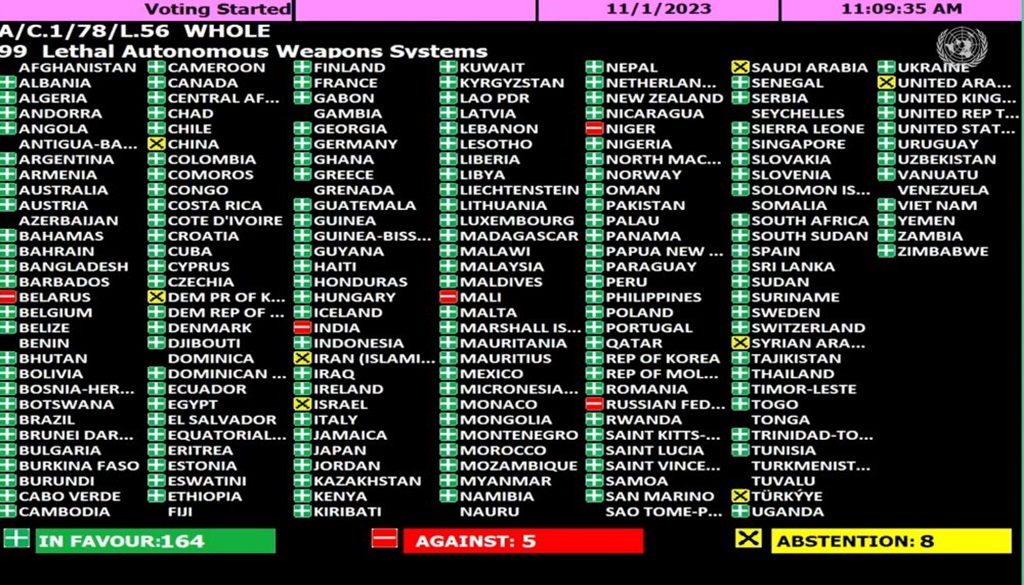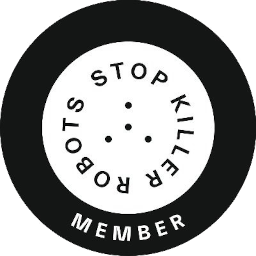
On November 1st, the United Nations General Assembly (UNGA) First Committee (Disarmament and International Security) voted overwhelmingly in favour of the first-ever resolution on autonomous weapons systems (AWS). 164 states voted in favour, 5 voted against and 8 abstained.
The resolution, which was tabled by Austria in partnership with a cross-regional group of co-sponsors on October 12th, emphasises “the urgent need for the international community to address the challenges and concerns raised by autonomous weapons systems.” The win represents an important milestone for the global Stop Killer Robots campaign and for states that are committed to negotiating a legally binding instrument to protect against the dangers of AWS.
Chris Cole, Executive Director of Drone Wars, a member organisation of the UK Campaign to Stop Killer Robots said:
“The passing of this resolution is an important step forward in the campaign to ban Killer Robots as it mandates the Secretary-General to seek the views of states and others on the way forward. So it’s really important now that we ensure that the public’s concerns about the humanitarian, ethical and security impacts are heard and relayed by the British government, and not just the voices of those with a vested interest in developing the technology.”
The resolution garnered huge support including from the UK Government. Strong momentum for regulation of AWS has been growing at all levels. In September, a Vatican official urged world leaders to negotiate an agreement on AWS and shortly before the resolution was tabled on October 12th a landmark call took place between the UN Secretary-General and ICRC President calling on States to negotiate a treaty on AWS by 2026.
Although the resolution does not call for negotiations, it is a significant step forward toward bringing us closer to a legal framework to ensure meaningful human control over the use of force. Once endorsed by the UNGA, the resolution would require the UN Secretary-General to seek the views and suggestions of Member States and observer States on how to address the humanitarian, legal, security, technological and ethical concerns with and impacts of AWS and to submit a report at next year’s UNGA. The report will also include the views of international and regional organisations, the International Committee of the Red Cross, civil society, the scientific community and industry.
Importantly, the resolution also decides to include an item entitled “Lethal autonomous weapons systems” in the provisional agenda of the seventy-ninth session of the UNGA. This would provide a further opportunity for states to pursue action to address this issue alongside / complementing the ongoing work of the Group of Governmental Experts (GGE) through the Convention on Certain Conventional Weapons (CCW) which was acknowledged in the resolution.
The adoption of the resolution followed the first global AI Safety Summit hosted by the UK. The UN Secretary-General who was in attendance delivered a statement in which he stressed the need for global oversight of AI. He also addressed the issue of AWS saying that “We need frameworks to monitor and analyse these trends [potential development of dangerous new AI-enabled weapons], in order to prevent them.”
The UK CSKR celebrates the progress made towards creating a new international law to safeguard against the risks of AI and thanks all those involved in making this win possible. The hard work does not stop and we must now ensure that all our efforts are directed towards ensuring an effective treaty.

